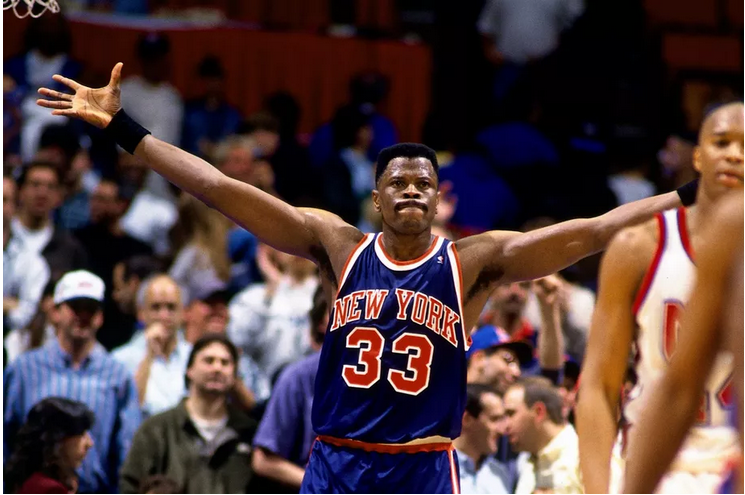Ewing Theory
In 1999, Patrick Ewing tore his Achilles during the NBA playoffs. A star player on the Knicks, Ewing’s injury led most to conclude that the team’s playoff run was over for this season. Unexpectedly, the Knicks defeated Indiana in three out of their next four games and made it to the NBA finals for the second time in a 26 year span. The Knicks appeared to play better without their star player.

This sequence of events is often regarded as the prime example of the Ewing Theory. The idea, credited to Dave Cirilli and popularized by sports writer Bill Simmons, attempts to explain why some teams strangely perform better without famous players. While codifying the concept, Simmons devised two conditions that must exist for the theory to apply:
-
A star athlete receives an inordinate amount of media attention and fan interest, and yet his teams never win anything substantial with him (other than maybe some early-round playoff series).
-
That same athlete leaves his team (either by injury, trade, graduation, free agency or retirement) – and both the media and fans immediately write off the team for the following season.
As the theory’s name implies, elements during Patrick Ewing’s basketball career provided the foundation for this thesis.
Does this Theory Extend Beyond Ewing?
From what I have read, the Seattle Mariners provide another example of Ewing Theory. After the team lost its star player, Ken Griffey Jr., in the early 2000s, it had an immensely successful season that seemed at odds with its current lineup. I’m not a scholar in sports history, so I wondered - can the Ewing Theory be applied to other examples within pop culture?
Immediately, I thought of The Office and the departure of Steve Carell. For those not familiar with the show, Carrell played the lead character, Michael Scott, a hilariously incompetent regional manager of a paper company. I think this situation gave the The Office the potential to be another Ewing Theory candidate. Most fans agree, however, that the show declined in quality following Carrell’s exit. Using Rotten Tomatoes reviews as guidance, Seasons 8 and 9, the two after Carell’s departure, display low ratings relative to the first 7 seasons. Season 8 actually received a 44% favorability rating which is nearly half the rating of the previous season. Also, I’m not sure if The Office adheres to the first Ewing Theory requirement since the show (team) did receive critical acclaim during Carrell’s tenure.
Among other pop culture examples, I think a thorough analysis of the evolution of the band Genesis could reveal another Ewing Theory candidate, but I don’t want to stoke any Peter Gabriel v. Phil Collins debates. Can you think of any other examples?
SOURCES
https://www.espn.com/espn/page2/story?page=simmons/010509a